Feature
XSCAPE IN REVIEW: The Michael Jackson Album That Isn’t a Michael Jackson Album
Published
10 years agoon
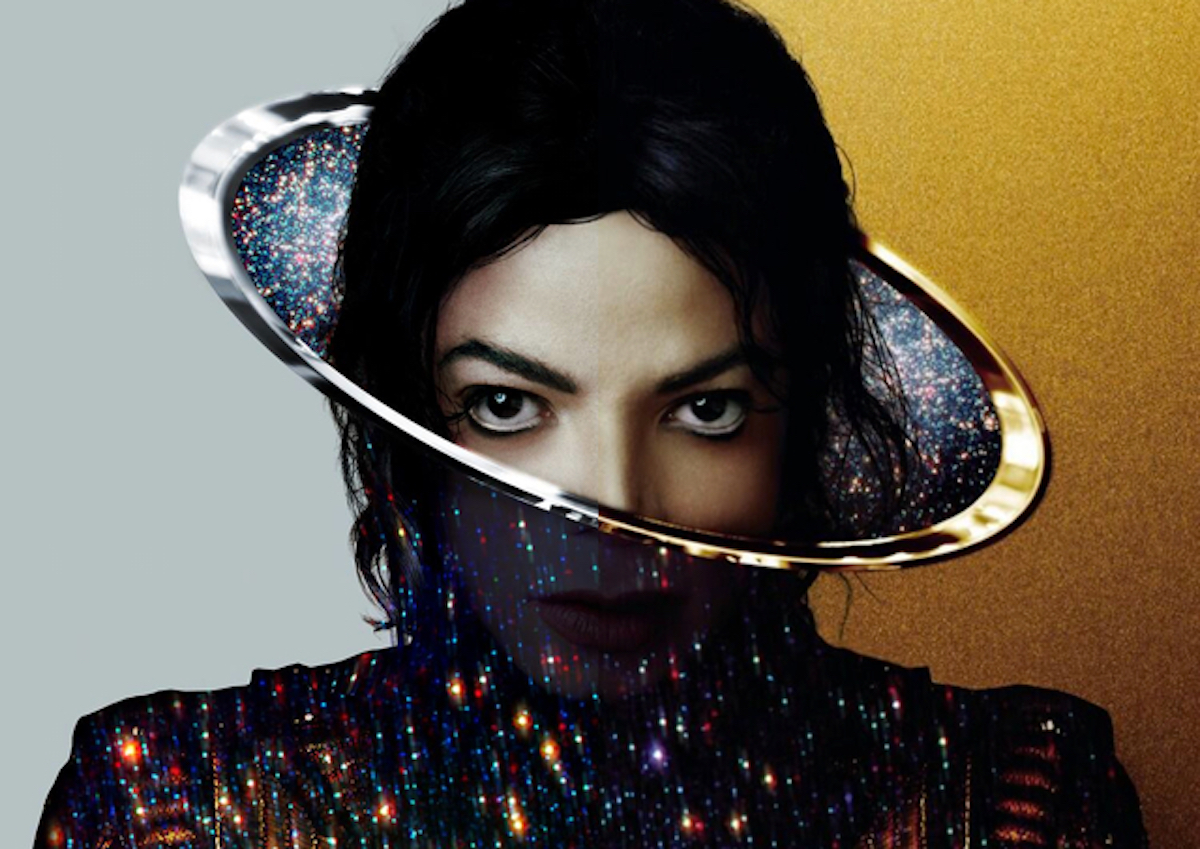
Tuesday May 13, 2014 marked the global release of the latest Epic Records product; a collection of eight previously unpublished songs recorded by the King of Pop and remixed by modern-day producers. A deluxe edition of the album, Xscape, includes all eight remixed tracks in their ‘original’, unaltered form, plus a bonus track featuring Justin Timberlake.
As I embark on writing a track-by-track review of the album itself, I feel the it necessary to preface my thoughts with the following:
As I’ve previously stated, I would personally not be releasing items from Michael Jackson’s vault of unheard music. The man gave us, the public, more than enough material during his life. I see absolutely no need for, or benefit in, scraping the barrel for works he personally overlooked for public consumption.
Throughout his solo adult career spanning 30 years (1979-2009) Jackson officially released six full-length studio albums. That’s an average of one album every five years. This is not because he was lazy or uninspired. Nor is it because he was idle. The reason Michael Jackson took so long to compile and release studio albums is because he was a perfectionist, stewing over every minor detail. He wanted to create masterpieces; songs and albums that would stand the test of time and live on forever as his legacy.
Once pressed and distributed for sale around the world Jackson would often continue to tweak his work. This is evident from the countless pressings of the Bad album – originally released in 1987 – that have been issued over the years; each with its own unique amendments. Even when it was “done” it wasn’t done!
Jackson’s attention to the most subtle sonic intricacies was second-to-none, and that’s what made him perhaps the greatest recording artist in music history. His desire to perfect those intricacies may seem obsessive-compulsive to some, but when you play a song like “Don’t Stop Till Ya Get Enough” today, 35 years after it was originally recorded, there is no debating Jackson’s time and effort was well spent.
For Xscape, Jackson was not able to captain the ship. In fact, it’s debatable whether or not the ship would have ever left the port – at least with this particular cargo on board – had Jackson not passed away on June 25, 2009.
The songs on the album – ones Jackson consciously opted against releasing during his lifetime – originate from recording sessions between 1980 and 1999. L.A. Reid, chairman of Epic Records, assembled a team of what he considers to be the best producers in the business today to remix the recordings – a concept that Jackson himself made crystal clear he did not like – for the album. Epic Records and the marketing team involved are refusing to acknowledge them as remixes, but for me that’s what they are.
Reid’s first call was to Timbaland, who not only did not work with Jackson during his life, but never even met him. Norwegian duo Stargate, whom Jackson admired greatly and wanted to work with, Estate co-executor John McClain, and former Jackson collaborator Rodney Jerkins also got the call to be involved with contributing their efforts to the project. Michael Jackson’s only participation was that his voice would be the star of the show, with Reid’s newly formed production ensemble charged with the task of building brand new soundscapes around some of the most spectacular vocal performances ever laid on tape.
In many cases on Xscape the producers executed their remixes without even consulting Jackson’s rhythmic or melodic blueprint found on the original versions of the tracks. Instead, they endeavoured to start from scratch, using, they say, Jackson’s acapella vocals only. For me this is a catastrophic mistake. Michael Jackson songs were built from the ground up. The bass, the chords, the percussion and other embellishments were put in place before any lead vocals were recorded. Jackson’s lead vocals were sung to match the music he’d worked so hard to perfect, which is why his voice is so rich in rhythm. So for the producers to start with the vocal stems and attempt to work backwards by matching the music to the vocals just makes no sense to me. As a result I feel there are sequencing and timing issues on a number of tracks, where the vocal is doing things the music cannot keep up with. I’ll touch on that in my track-by-track review.
Just to be clear, this, in my opinion, is NOT a new “Michael Jackson album” per se. It is simply a compilation of songs – remixes and originals – on which Michael Jackson’s voice appears. And that’s how I’ll be reviewing it. The music on this album does not have Michael Jackson’s final seal of approval and, in my opinion, cannot be held to the standards of the material he willingly released during his life.
Love Never Felt So Good Recorded in 1980, not ’83 as is being promoted, this track is a collaboration between Jackson and songwriter Paul Anka. In its original form we hear a youthful Jackson recording a warm, sweet, joyous demo that was not meant for public release in any way, shape or form. The track is not a studio recording, but rather a songwriting session caught on tape and frozen in time. The original track, in the version we hear, is not finished. And it never was; at least not by Jackson. So when I heard that the track had been selected for the album I felt a bit uneasy. Then when I discovered that it had also been chosen as the album’s lead single, I was dumbfounded. However in hindsight, after hearing the newly-crafted John McClain and Giorgio Tuinfort co-produced Xscape album version, I can definitely understand Epic Records’ decision to use it. The production takes what was a sweet yet unassuming demo, featuring merely a piano and Jackson’s real-time finger snaps, and turns it into an Off The Wall-inspired track reminiscent of the funky-smooth “Rock With You”. I like it. I also really quite like the version that features Justin Timberlake, which was produced by Timbaland, and recalls samples of Jackson’s “Workin’ Day & Night”. Neither the McClain/Tuinfort version nor the Timbaland/Timberlake remix will leave you breathless, but all in all the track is an organic way to kick off the album.
Chicago This Invincible outtake was written in 1999 by super-producer and former record executive Cory Rooney (Jennifer Lopez, Destiny’s Child, Marc Anthony) and recorded by Jackson the same year at The Hit Factory in New York City. Originally called “She Was Loving Me,” this is one of only two never-before-heard tracks on the Xscape album. The original Rooney-produced version takes me right back to the mystical vibe and sonic tranquility that oozes from the King of Pop’s “Liberian Girl” from 1987’s Bad album. Jackson’s voice in the verses is as smooth as ever, before unleashing a powerful surge of vocal fire in the choruses. The original version suits the era from which it originates. Timbaland, who produced the remix, brings the song into 2014 by completely departing from the original’s feeling. At first I was taken aback by the new Timbaland remix, as I had previously heard an alternate mix co-produced only a few years ago by Cory Rooney with Michael’s nephew Taryll Jackson. The Rooney/Jackson production really allows Jackson’s vocal to soar, while the hard-hitting guitar and drum infused chorus really punches you in the gut. Their version reminds me of “Give In To Me,” “Billie Jean” and “Dirty Diana” rolled into one. Timbaland, on the other hand, has turned “Chicago” into a somewhat radio-friendly pop song with an RnB flavour for the Xscape album. Unfortunately in doing so he has also sucked some of the spirit and Jackson magic out of the track. The music, to my ears, is very generic and sounds like it comes straight from a free downloadable collection of bass sounds and drum beats. Enter the world of Timbaland and the 808 trap drum. To be continued.
Loving You This beautiful mid-tempo love song was written and recorded smack-bang in the middle of the 80s with musician John Barnes. Epic Records is marketing the track as being recorded during the 1987 Bad sessions, which it was not. It was done, dusted and shelved before the Bad sessions began. Regardless of its origins, the song is delightful. It reminds me of a cross between “Carousel” (a Thriller outtake) and “One More Chance” (from The Jacksons’ Victory album). Jackson’s voice, as usual, is divine. Timbaland delivers one of my favourite remixes on the album with this one, with an attention grabbing piano intro and some interesting embellishments throughout. For the second time in a row he resorts to the 808. Trap drums invade the chorus and remind us that Michael Jackson had absolutely nothing to do with this remix. I have to admit it took me about half-a-dozen listens to get into the remix, but the track is so strong melodically that it eventually won me over. Now I love it. I can absolutely imagine hearing “Loving You” on the radio and anticipate it will be the released as a single at some point.
A Place With No Name Co-written by Elliot Straite (aka Dr. Freeze) with Michael Jackson in 1998, the origins of this song date back much further than the King of Pop’s recording. “A Place With No Name” is actually a re-written cover of the 1972 hit “A Horse With No Name” by the group America – originally written by Dewey Bunnell. The original Michael Jackson rendition of the song, as it appears on Xscape, is very true to America’s version and packed with nostalgia. It even borrows the famous guitar riff that plays throughout. The track showcases Jackson’s innate ability captivate the listener by telling intricate, detailed stories through musically-engaging pop songs that are not only catchy, but timeless. Jackson continued to work on this track for a decade, and even after he last tweaked it with producer Neff-U in 2008 it was still not considered “complete”. The remix, carried out by Norwegian production duo Stargate, is a completely different from the version Jackson last worked on. This can be largely put down to the fact that it was constructed by Stargate, according to them, without them listening to Jackson and Freeze’s original composition. It has a European feel, is extremely funky and has a bass line fans are comparing to the one featured in Jackson’s “Leave Me Alone”. I personally think the remix sounds remarkably like Stevie Wonder’s “Higher Ground”. The remix builds really nicely, and breaks back down throughout to great effect. The only issue for me was the seemingly out-of-place MJ vocal tics and ad libs in the intro. Jackson would use vocal tics, grunts and breaths to enhance the percussion of a song. However during the intro there is absolutely no percussion and the ad libs sound, at least to me, like they do not belong there. Regardless, I personally love the remix. It’s another of my absolute favourites and makes me wish Stargate would have produced more than just one remix for the album.
Slave To The Rhythm Chairman of Epic Records, L.A. Reid, and his collaborative partner, Kenneth “Babyface” Edmonds, co-wrote the original version of this track way back in 1990. Jackson cut his ferocious vocal for it during the Dangerous recording sessions; twenty-four times over according to Reid! In its original version the track is a throwback to the late ‘80s Janet Jackson sound. To put it simply, the original version is awesome! But then we have the remix and the news is not so good. Timbaland tackled the reimagining of “Slave” but fell miles short of both the original version, and previously leaked remixes by Tricky Stewart and Max Methods. Timbaland has suffocated Jackson’s powerful vocal with a plethora of pointless electronic “sounds”. To me there is very little (if any) musical quality to this remix, and whatever melodic thread previously existed has been eradicated. “Abomination” is a word that comes to mind when describing this track. It is by far and a way my least favourite remix on Xscape – one which could have easily been among the best remixes if approached differently. Timbaland was way out of his depth on this one and ended up drowning in a sea of “noise”.
Do You Know Where Your Children Are During the 1980s Jackson became inspired by those classic late-night television commercials that implored parents to ask themselves the question (that became the song’s title): “Do You Know Where Your Children Are?” The original version of this track is simply magnificent and instantly reminds me of “Abortion Papers” from Bad 25. While there is nothing groundbreaking about the sounds Jackson used to create the demo, there is everything groundbreaking about the message. A chilling tale of a 12-year-old girl who falls victim to sexual abuse at the hands of her step-father before running away from home to escape said horror. The girl ultimately finds herself involved in child prostitution on the streets of Hollywood before being arrested by police. The King of Pop truly was the voice for the voiceless, finding a way to articulate this delicate story with both sensitivity and power, while delivering the track as an incredibly catchy pop song. Timbaland delivers his fourth offering from Xscape with a remix of this track that I actually really love. The new production is somewhat “video game-ish,” but in my opinion it works. Packed with pauses, breakdowns and muddy guitar solos, this remix is perhaps the most unique on the album. Most Jackson purists will be outraged that I like this version, but I can’t help it. Rodney Jerkins, who worked with Jackson from 1999 to 2003, believes Jackson would have loved the production so much that he’d have climbed atop the studio equipment and danced in celebration. While I don’t claim to know what Jackson would or would not have done or liked, I can tell you that this remix is coincidentally reminiscent of an unreleased track Jackson was working on in the final years of his life.
Blue Gangsta The original version of “Blue Gangsta” was written by Dr. Freeze. Contrary to the album credits in the Xscape liner notes, Michael Jackson did not co-write this song. The same thing happened with “Break Of Dawn” from the Invincible album – another Dr. Freeze track that Michael Jackson somehow got an undue co-writer’s credit for. Regardless of its authorship, Jackson delivers yet another powerhouse vocal performance. Personally I’ve never been much of a fan of the original version’s brass and accordion-infused composition, but when you hear Timbaland’s remix of the track you really begin to appreciate the original. The intro on Timbaland’s remix is dark and mysterious, and the first verse is chillingly cool with Jackson singing percapella. But when the first chorus kicks in we witness the not-so-triumphant return of the 808 trap drum, much to the track’s detriment. Judging by his remixes on this album it would appear the Timbaland has one of the music industry’s most limited percussion vocabularies. As soon as the chorus kicks in, I’m lost. Completely disengaged from the track. All I can picture is L.A. Reid’s “stink face” (dancers will know what that is) as he awkwardly grooves along to the track during the filming of the Xscape Deluxe Edition‘s accompanying making-of documentary. I had very high hopes for this remix but am left feeling massively let down. They should’ve let Stargate loose on this one.
Xscape The only track on the album that has been revisited and reimagined by the same producer who worked on the original version. Written and recorded in 1999, and worked on until 2002, Jackson sings of the the pressures that fall upon him in his not-so-regular everyday life. The original version has been online since late-2002 when the track leaked against the singer’s wishes. Because of the leak Jackson cancelled plans to release the song officially and it became yet another “unreleased” MJ track. This song is perhaps the only track of the collection that I’m comfortable seeing released in its original form, because Jackson had planned to let the public hear it. It’s done. Complete. And it’s excellent. The remixed version, however, leaves me with mixed feelings – mainly because I’ve spent the last decade hearing it the way I’ve always known and loved it. I’m having adjustment issues, but it’s nothing against the new mix. In the remix Jerkins seems to lift the track to a more breezy place. Industrial grunt and stick percussion is replaced with booming bass, 808s and punchy horns. It’s cool. It’s completely different. But I can’t help but consciously wonder whether Jackson would like it or not. I can’t seem to completely escape into “Xscape,” but I like it. I feel it’s a sonically sound effort and a palatable way to close the album that leaves me wishing Jerkins had done more than just one song.
Overall the Xscape album delivers pretty much what I expected. Trademark production-value of modern-day “musicians” who rely on computers and machines to recreate the sounds that form their compositions. When you consider that Jackson worked on perfecting some of the original versions of these songs (such as “A Place With No Name”) for up to ten years, and note that executive producer Timbaland, for example, came in and completed a remix a day, it’s no wonder that Jackson’s astonishingly brilliant back-catalog will sound as fresh in 50 years as it is today, while many of these remixes, as much as I do enjoy some of them, will likely sound dated by Christmas.
Damien Shields is the author of the book Michael Jackson: Songs & Stories From The Vault examining the King of Pop’s creative process, and the producer of the podcast The Genesis of Thriller which takes you inside the recording studio as Jackson and his team create the biggest selling album in music history.

You may like
-


Producer Teddy Riley Comes Clean Regarding Fake Songs From Posthumous Michael Jackson Album
-
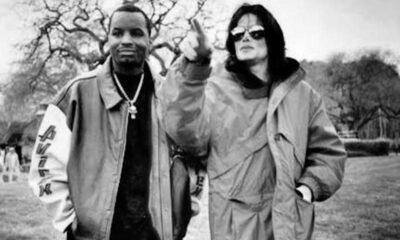

Michael Jackson Meets America in Invincible Album Outtake ‘A Place With No Name’
-
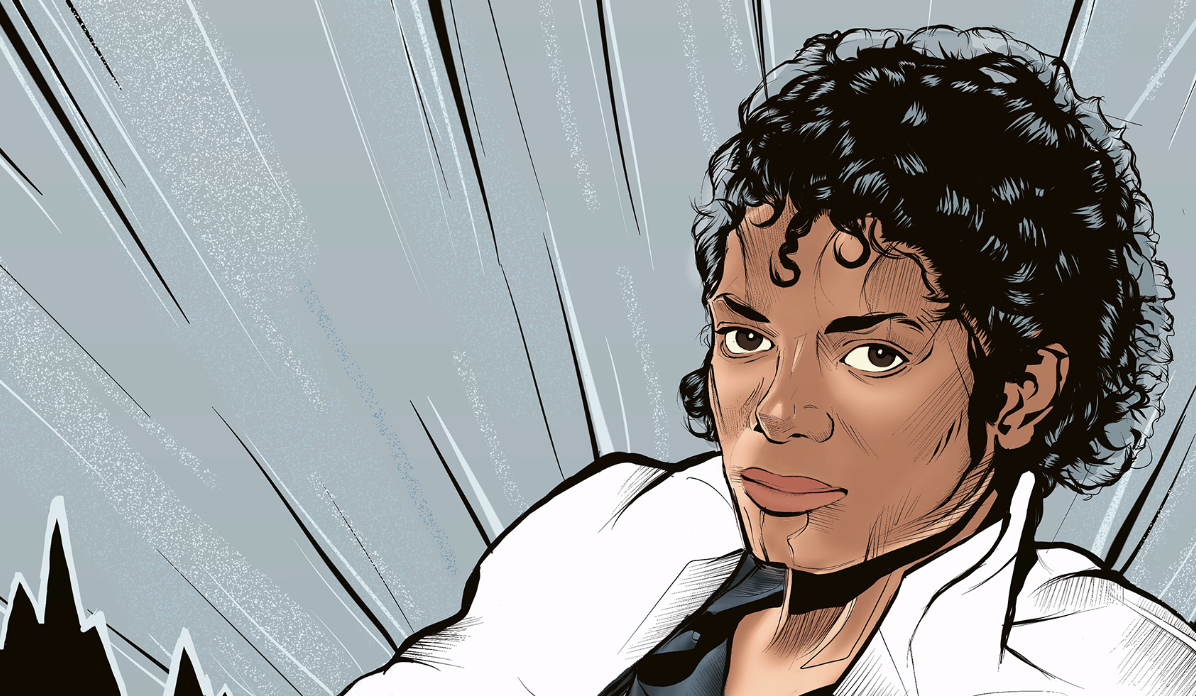

The Genesis of Thriller – A Michael Jackson Podcast Documentary
-
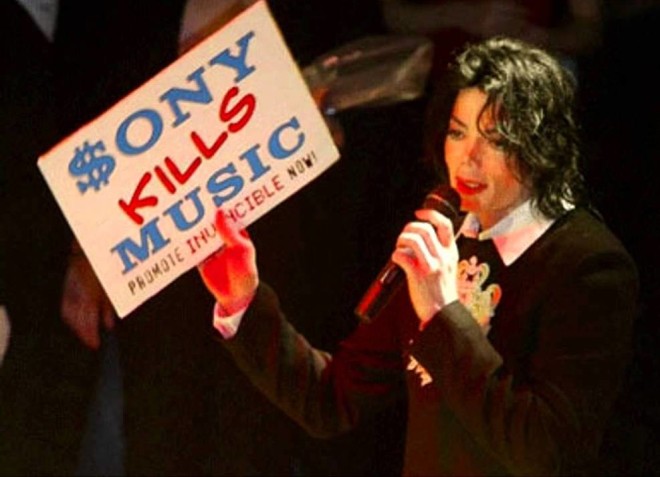

BREAKING: Court Rules Sony Music Can Sell Fake Songs Under Michael Jackson’s Name
-
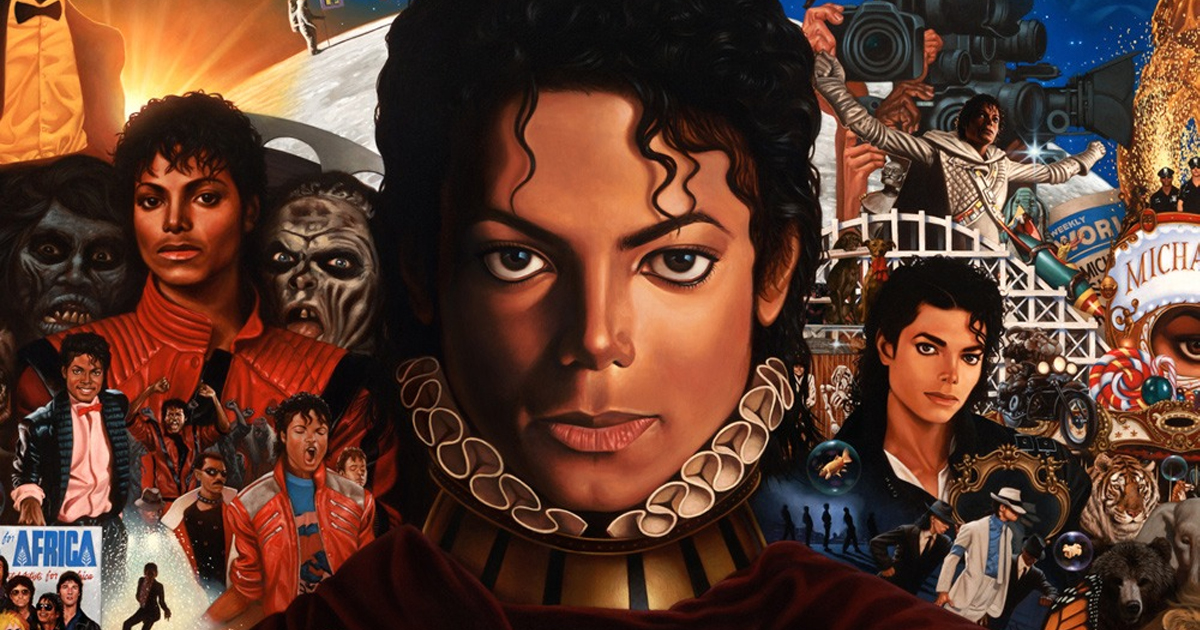

Partnership Between Sony Music and Michael Jackson’s Estate Renewed Amidst Ongoing Fraud Lawsuit
-
Auction Items Labelled as ‘Michael Jackson’ Recordings Do NOT Feature Jackson’s Voice
30 Comments
Leave a Reply
Cancel reply
Leave a Reply
Cascio Tracks
Producer Teddy Riley Comes Clean Regarding Fake Songs From Posthumous Michael Jackson Album
Published
2 years agoon
September 23, 2022
Legendary producer Teddy Riley has spoken out against the controversial Michael Jackson album he worked on after the pop star’s death, claiming that he believes some of the tracks he was asked to remix for the project are fakes, but that he was “pushed” to say they were authentic.
“I just hope that the truth comes to light because it was never proven to me that it was Michael’s voice,” said Riley in a bombshell video published today by hard-hitting pop culture interviewer DJ Vlad for Vlad TV.
The songs in question, known as the Cascio tracks, were provided to Sony Music and the Estate of Michael Jackson by the pop star’s longtime friend Eddie Cascio and his collaborative partner James Porte.
Cascio and Porte claim that Jackson recorded 12 songs in Cascio’s basement shortly before his death. Three of those songs – “Keep Your Head Up,” “Breaking News” and “Monster” – were included on the Michael album in December 2010.
Riley, who worked extensively with Jackson throughout his life, remixed “Breaking News” and “Monster” for the posthumous project.
Initially, Jackson’s family gave Riley their blessing to work on the project. Michael’s nephew, Taryll Jackson, even joined Riley in the studio.
But upon hearing the Cascio tracks, Taryll believed the vocals were sung by an impostor.
When the rest of the Jackson family heard them, they felt the same way, taking to social media to denounce the Cascio tracks as fakes.
Amidst all the controversy, Riley and Cascio appeared on Oprah Winfrey’s talkshow, where they both insisted the vocals were the real deal.
But when interviewer DJ Vlad asked Riley about it, the producer made the explosive claim that he was forced to say the vocals were authentic:
“I was influenced and pushed to say the things that were said.”
The producer went on to explain that he initially demanded proof regarding the authenticity of the vocals, but that no such proof was ever presented.
“They would not prove it to me,” says Riley.
Riley also says that Jackson’s nephew, Taryll, encouraged him to distance himself from the tracks, but that Riley felt too intimidated by those in control of the project to do so.
“I felt I was dealing with some high, powerful people. And I didn’t want no problems at all.”
Riley explains that his decision to continue working on the Cascio tracks ultimately cost him his friendship with Taryll.
“I was like, Taryll, I already got paid. What do you expect me to do? And he stopped speaking to me for a while. And I was like damn, I lost my friend over this.”
Riley said that to be involved in another Michael Jackson project in the future, he would need proof that the vocals were authentic, and for the Jackson family to be on board and involved.
“[Michael] is their family. This is their brother, their son, their uncle,” said Teddy.
“I will not move until I have their blessing. But this time I want a real blessing. I’m not talking about money. I want a real blessing from the family.”
Riley also took the opportunity to apologise to fellow producer Quincy Jones.
During the interview, DJ Vlad reminded Riley that back in 2010, Riley accused Jones of being too old to know the difference between the real Michael Jackson and a fake Michael Jackson.
“My apologies, my apologies,” said Riley to Jones in the video. “I always wanted to say that, because Quincy is someone I look up to… He’s a guy that I worship as my idol.”
Riley’s interview with Vlad TV comes just months after Sony Music and the Michael Jackson Estate abandoned the Cascio tracks.
As part of the settlement of a consumer fraud lawsuit filed against them over the Michael album, Jackson’s estate and Sony removed the three commercially-released Cascio tracks – “Breaking News,” “Monster” and “Keep Your Head Up” – from streaming platforms around the world.
The corporations have also re-pressed the physical CD of the Michael album without the Cascio tracks, and are now selling the amended version via the official Michael Jackson shop online.
For those of you who are interested, a podcast series called Faking Michael, detailing the findings of my 12-year investigation of the Cascio tracks, is currently in production. Subscribe via Apple Podcasts, Spotify or YouTube to be notified when episodes are released.
Damien Shields is the author of the book Michael Jackson: Songs & Stories From The Vault examining the King of Pop’s creative process, and the producer of the podcast The Genesis of Thriller which takes you inside the recording studio as Jackson and his team create the biggest selling album in music history.

Cascio Tracks
Huge Win for Michael Jackson Fan as Supreme Court Rejects Sony’s Free Speech Defense in “Fake” Songs Lawsuit
Published
2 years agoon
August 23, 2022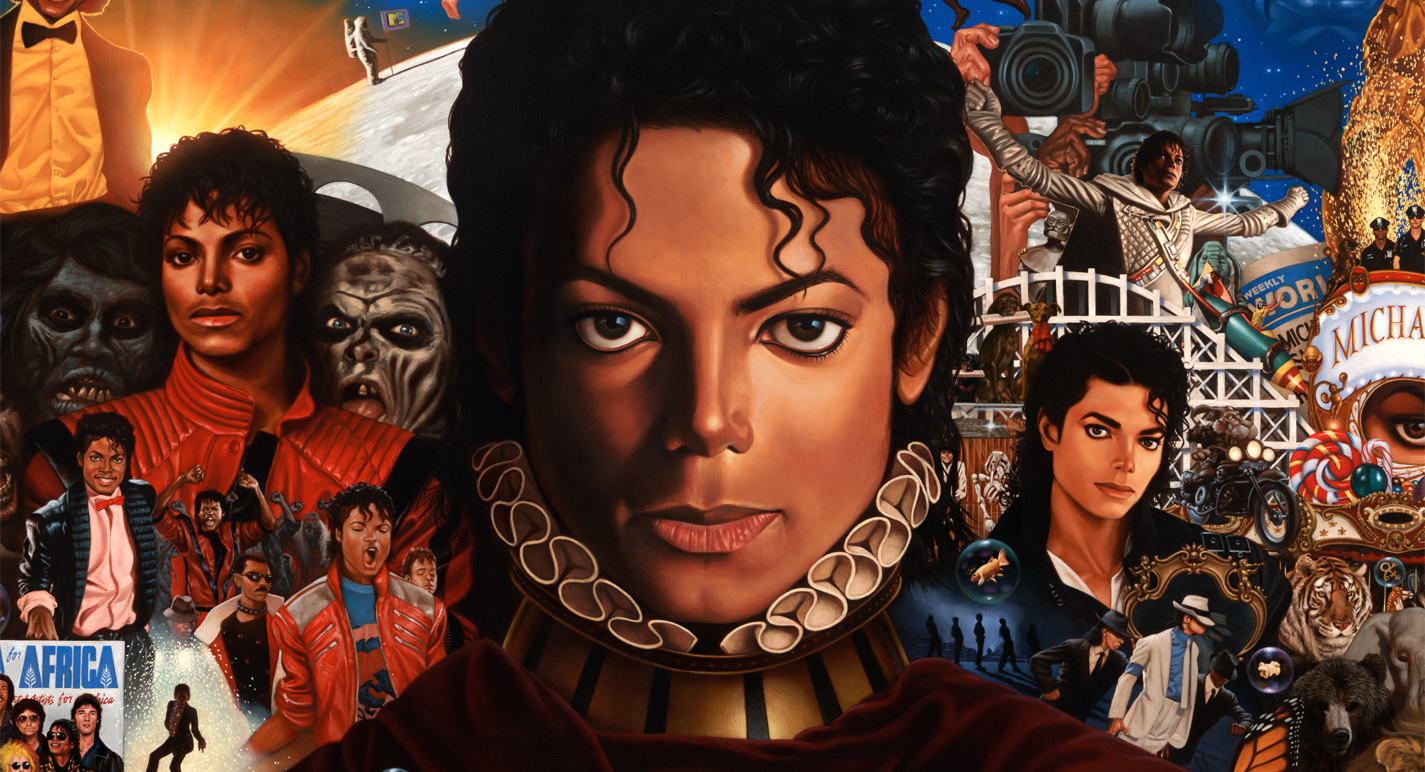
Two ‘get out of jail free’ cards, used by lawyers for Sony to avoid facing the music in a consumer fraud lawsuit, were ripped to shreds by the California Supreme Court on Thursday last week.
As part of their ruling, the court determined that the description on a posthumous Michael Jackson album cover was indeed commercial speech — not free speech, as lawyers for Sony and Jackson’s estate had argued — and that consumers have a case if false or misleading statements were made in the description.
The unanimous ruling sets an important precedent for the protection of California consumers in cases of alleged fraud moving forward.
This case
The controversy centers around an album titled Michael, released 18 months after Michael Jackson’s death by his estate and Sony Music Entertainment.
Prior to the album’s December 2010 release, members of Jackson’s family claimed that three songs on Michael — “Breaking News,” “Keep Your Head Up” and “Monster” — were fakes, with vocals sung by a Jackson impersonator.
But Sony and Jackson’s estate insisted the songs, which they acquired from the pop star’s friend Eddie Cascio and his collaborative partner James Porte, were the real deal.
The songs are known as the ‘Cascio tracks’.
In response to the controversy, Estate attorney Howard Weitzman said he’d conducted an “exhaustive investigation” during which a host of Jackson’s former producers had listened to the Cascio tracks and confirmed that the vocals were “definitely Michael”.
But several of those producers dispute Weitzman’s version of events. You’ll hear their stories in an upcoming podcast series called Faking Michael.
Nevertheless, based on the purported findings of Weitzman’s investigation, Sony asserted their “complete confidence” in the authenticity of the Cascio tracks.
With the authenticity a matter of conjecture, fan Vera Serova relied on Sony and the Estate’s assurances — that the tracks on Michael were indeed sung by Jackson — when she decided to buy the album.
Further convincing Serova to hand over her money was the product description printed on the reverse side of the album cover. It stipulated that the vocals were “performed by Michael Jackson”.
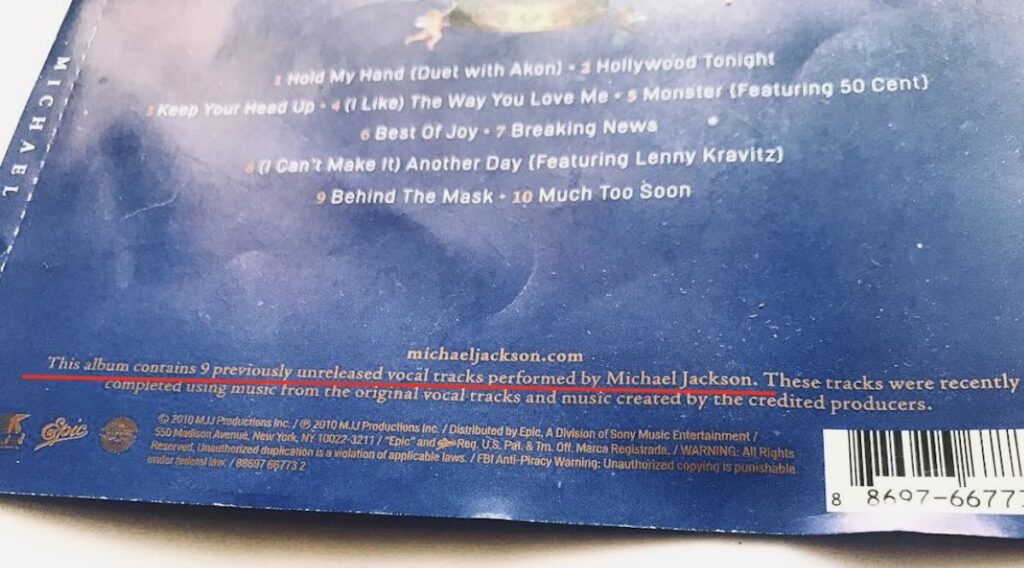
But as evidence contradicting the official story emerged, Serova began to believe she’d been duped.
And so she hired a world-renowned forensic audiologist, who conducted a groundbreaking scientific examination of the vocals on the Cascio tracks. His opinion: the vocals weren’t Michael’s.
That forensic examination was the catalyst for what became an eight-year David versus Goliath legal battle, culminating in Thursday’s Supreme Court ruling.
Corporations can’t sell fake art as the real deal
“Relief has long been available in California to unwitting purchasers of imitation art who relied on false representations about authenticity” said the court in their 45-page opinion.
“If Sony’s assertion that Jackson contributed lead vocals affects consumers’ experience of Michael, this illustrates how misrepresentations about an artist’s contributions can harm consumers in ways that matter to them.”
Executive director of the Berkeley Center for Consumer Law & Economic Justice, Ted Mermin, who supported Serova in her battle with Sony, said:
“If we are buying an album that is marketed as being the songs of Michael Jackson, it had better have the songs of Michael Jackson.”
As well as setting an important legal precedent protecting California consumers, the court’s ruling inadvertently protects artists.
Based on the ruling, there is no plausible excuse for falsely attributing fake works to famous artists. This puts songs on par with paintings and sculptures when it comes to outlawing art forgery.
The ruling is a huge win for creatives, whose reputation — and therefore livelihood and legacy — could be at stake if corporations were free to commercially exploit pastiches under their name.
“Misleading attributions on a record jacket might not only confuse consumers […] but also harm a performer’s reputation,” the court’s ruling states.
But what happens if a corporation sells a forgery without knowing it’s a forgery? This was also covered in the Supreme Court’s ruling.
Sony’s ‘lack of knowledge’ defense
Sony’s purported ‘lack of knowledge’ was raised by the corporation itself in a 2016 petition to be removed from Serova’s lawsuit.
At the time, lawyers for Sony and the Estate volunteered to argue their case based on the notion that the Cascio tracks were fakes, but that they ‘didn’t know’ at the time they released them back in 2010.
It should be made clear that this wasn’t an ‘admission’ that the Cascio tracks are indeed fake. Rather, it was their way of arguing that ‘even if’ the tracks are fake, they’ve done nothing wrong by selling them to fans as authentic Jackson material.
In a December 2016 trial court hearing, attorney Zia Modabber argued that to be liable for misleading consumers, Sony and the Estate had to know the songs were fake, adding that Cascio and Porte had “failed to disclose to Sony or the Estate that Michael Jackson did not provide the lead vocals.”
But the judge overseeing that hearing didn’t take kindly to Sony’s position, saying:
“I think what [Modabber] is saying here is. ‘We were duped… We didn’t know [Cascio and Porte] were recording stuff in a basement that wasn’t recorded by Michael. [Cascio and Porte] told us it was Michael. We believed it was Michael.’”
The judge accused Sony of throwing Cascio and Porte under the bus before ruling in Serova’s favour, ordering Sony to face the music.
But Sony appealed, and in 2018 the appeals court took Sony’s side, dismissing the corporation from the lawsuit.
Serova then challenged the decision to dismiss Sony, petitioning the California Supreme Court to intervene, which they did.
That, in a nutshell, is how we got to Thursday’s ruling — arguments for which were heard by the court on May 24, 2022.
During that May 24 hearing, Modabber again argued that Sony couldn’t be held accountable because they didn’t know the vocals were bogus when they released them in 2010.
But on Thursday, the court rejected Sony’s lack of knowledge defense once and for all, stating that if ignoring evidence was all a corporation had to do to get away with fraud, false advertising laws would be redundant.
“If ignorance around a product’s authenticity were a legitimate defense against false advertising claims, sellers would be incentivized to know as little as possible about their own products,” said the court in their ruling.
“Sellers making claims about their offerings surely do not avoid false advertising regulation […] by scrupulously declining to verify those claims or to acquire knowledge.”

Jeremy Bollinger, one of the attorneys representing Serova, told the LA Times that the court’s ruling was not only a victory for his client, but for all music and art consumers.
“The decision confirmed that it doesn’t matter whether the seller has personal knowledge of the veracity of its statements about its products,” Bollinger said. “If you’re going to sell something, you’re responsible for those representations.”
If they didn’t know in 2010, they knew by 2018
As we discussed earlier: back in 2010, before the Michael album was released, questions were raised regarding the authenticity of the Cascio tracks.
At that time, several people told Estate attorney Howard Weitzman that they did not believe the vocalist was Michael. They alleged it was another singer, named Jason Malachi.
In response, Estate attorney Howard Weitzman claimed that he spoke to Malachi and confirmed that he wasn’t involved.
But when fans heard the Cascio tracks, many identified Malachi’s voice — not Jackson’s — on the tracks.
Further validating the reaction of fans was Malachi’s longtime producer, Tony Kurtis. In a barrage of comments posted via YouTube, Kurtis stated that he knew “without a doubt” that Malachi was the vocalist.
Even the aforementioned audiologist noted in his forensic report that the dialect and vibrato of the Cascio vocalist were consistent with Malachi, but not with Jackson.
Then, in early 2018, Malachi hired a lawyer.
That lawyer then contacted Vera Serova’s legal team to discuss Malachi’s involvement with the Cascio tracks.
Serova and her lawyers claim that Malachi’s lawyer said that his client wanted to help resolve Serova’s litigation with Sony — and to get paid for his involvement.
Malachi's lawyer Alan Tilles had contacted my lawyer before he spoke to the Estate. Malachi wanted to help us settle the Cascio songs case and get compensated for the tracks in the process. The Estate didn't like that idea though. Hence… we are in the Supreme Court.
— morinen (@MorinenMJ) June 24, 2019
A meeting between Malachi’s lawyer, Serova’s lawyers and lawyers for Sony and the Estate was arranged.
But according to Serova’s lawyers, the day before the meeting was set to take place, Sony and the Estate cancelled it, and communications with Malachi’s lawyer came to an abrupt end.
For the four years that followed Malachi’s attempted intervention, Sony and the Estate continued to argue their ‘lack of knowledge’ defense, while also continuing to commercially exploit the Cascio tracks as authentic Jackson recordings.
Calls and emails to Malachi and his lawyer — offering them the right of reply — were not returned.
Why don’t Sony and the Estate sue Cascio and Porte for fraud?
In their 45-page ruling, the California Supreme Court supposed that if the Cascio tracks are indeed fake, Sony and the Estate would want to file a fraud action against Cascio and Porte for duping them, stating:
“Presumably, Sony would seek to invoke any warranties, or assert fraud or other claims, against Cascio and his associates if it believed they peddled fake recordings.”
But in this case, it’s the exact opposite.
In fact, Sony and the Estate have stood firmly behind Cascio and Porte since 2010, regardless of the overwhelming evidence and public outcry against them — something that no one, including Jackson’s family, fans and former collaborators can understand.
Songs removed, case closed
In a somewhat anticlimactic end to their eight-year legal battle, just days before the Supreme Court issued its ruling, Sony and the Estate reached a settlement agreement with Serova.
As part of the settlement, Sony and the Estate were forced to remove the Cascio tracks from digital retailers and streaming platforms around the world.
Based on Serova’s statements over the years, it was clear that no settlement could have been reached without this demand being met.
It should be noted that, according to Serova, she did not receive any money as part of her settlement.
As she has maintained from the beginning of her legal action, Serova’s main objective in filing this lawsuit was justice for Michael Jackson, his art and his fans.
And while Sony hasn’t offered refunds — or an apology — to fans who feel they’ve been duped, the removal of the Cascio tracks from digital platforms worldwide has gone a long way to restoring the integrity of Jackson’s discography.
But despite the Supreme Court’s ruling — that the wording on a CD cover is subject to consumer protection laws — it appears Sony and the Estate have opted against recalling CD copies of Michael from music stores or other retailers around the world.
This is surprising.
The case with Serova is settled only with Serova, meaning anyone else who purchased the album within the statute of limitations — or anyone who might buy the album in the future — would be able to sue Sony and the Estate just like Serova did.
The only difference is that a potential future plaintiff wouldn’t have to argue that the wording on the album cover was commercial speech, or contend with a ‘lack of knowledge’ defense from the corporations.
Now that the case is settled, will the truth regarding the Cascio tracks and the Michael album ever be told?
After selling the Cascio tracks as authentic Jackson recordings for almost 12 years — since December 2010 — Sony and the Estate’s settlement with Serova seems to have absolved Cascio and Porte of liability. At no point were the alleged forgers required to testify under oath, or prove the authenticity of their songs.
And while Sony and the Estate have stated that the recent removal of the Cascio tracks from digital platforms is the “simplest and best way to move beyond the conversation associated with these tracks once and for all,” many of Jackson’s most dedicated fans continue to demand answers.
My forthcoming true crime podcast series Faking Michael will explore those answers, taking listeners behind the scenes to uncover the music industry scandal they were never meant to hear about.
Subscribe via Apple Podcasts, Spotify or wherever you listen to podcasts to be notified when episodes become available.
Damien Shields is the author of the book Michael Jackson: Songs & Stories From The Vault examining the King of Pop’s creative process, and the producer of the podcast The Genesis of Thriller which takes you inside the recording studio as Jackson and his team create the biggest selling album in music history.

Cascio Tracks
Alleged Forgeries Removed From Michael Jackson’s Online Catalog After 12 Years of Protests and a Fraud Lawsuit
Published
2 years agoon
July 7, 2022
Three songs alleged to have been falsely attributed to Michael Jackson were abandoned by the pop star’s estate and record company this week after 12 years of fan protests and a consumer fraud lawsuit.
The alleged forgeries – known as the ‘Cascio tracks’ – come from a collection of 12 songs which producers Eddie Cascio and James Porte claim Jackson secretly recorded in Cascio’s basement in the fall of 2007.
The 12 Cascio tracks were sold to Jackson’s estate a year after the pop star’s death, and three of them – “Breaking News,” “Keep Your Head Up” and “Monster” – were officially released by Sony Music on the Michael album in December 2010.
But Jackson’s fans insist the songs are fakes, with vocals sung by an impostor, and they’ve been demanding the tracks be removed from Jackson’s catalog for the past 12 years.
This week, they got their wish, with the controversial songs being removed from streaming platforms around the world. Jackson’s estate also appear to have discontinued the original 10-track CD version of the Michael album, replacing it with a 7-track edition which can now be ordered from their official website.
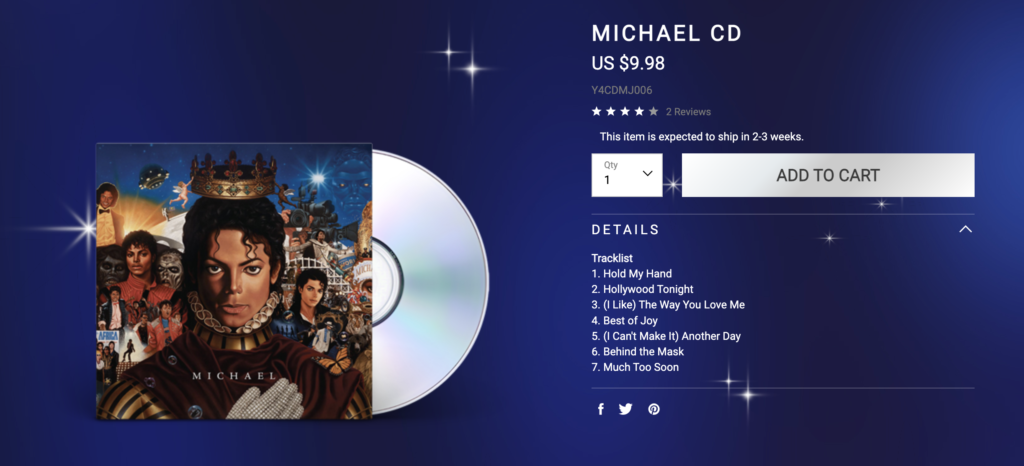
But according to a joint statement issued by Jackson’s estate and Sony – who are currently co-defendants in a class action lawsuit which alleges that the Cascio tracks are fakes – their decision to abandon the tracks had nothing to do with their disputed authenticity:
“The Estate of Michael Jackson and Sony Music decided to remove the tracks ‘Breaking News,’ ‘Monster’ and ‘Keep Your Head Up,’ from the 2010 ‘Michael’ album as the simplest and best way to move beyond the conversation associated with these tracks once and for all,” reads the statement, adding that “nothing should be read into this action concerning the authenticity of the tracks – it is just time to move beyond the distraction surrounding them.”
But many fans aren’t accepting Sony and the Estate’s position, because the “conversation associated with these tracks” is founded entirely on their disputed authenticity. According to some fans, removing the songs while defending their authenticity is not way to move “beyond the distraction surrounding them.”
We want an apology. We are not moving on. You released these songs OVER AND ABOVE the public protestations of Michael Jackson's family, friends and fans… you don't get to "move on" without taking accountability. https://t.co/S1HERXv8Wn
— Samar @TheMJAP (@TheMJAP) July 6, 2022
Typical condescending nonsense from the Estate, putting the blame on fans when they had ample opportunity to investigate the authenticity of the tracks prior to release which would have avoided this "distraction" altogether. https://t.co/PwZweJHDEv
— Ben Nagle (@bennagle9) July 6, 2022
All this proves to me is they absolutely know about their deception and are doubling down on it.
— Morganna Bramah❤️🔥 (@Cyborganna) July 6, 2022
Vera Serova's lawsuit against them in this matter was clearly developing in a direction they hadn't anticipated and want it all to be over.
These crooks have GOT to go! https://t.co/HsJ4pNmBlc
They cannot admit the songs are fake, because the court case is still ongoing. But actions speak louder than words.
— Casey Rain (aka S-Endz) (@CaseyRain) July 5, 2022
Ask yourself this – What is the chance that a released, authentic Michael Jackson song would be removed from streaming?
Answer? 0% https://t.co/jO7MFJkBXa
And despite the fact that the “conversation associated with these tracks” has persisted relentlessly for 12 years, Sony and the Estate continued to sell the tracks to unwitting consumers throughout that entire period, while reaping millions of dollars from what many believe are brazen forgeries.
Until now.
The Jackson family tried to warn them
Prior to the release of the Michael album in 2010, several members of the Jackson family tried to reason with the Estate, informing them that the vocals on the Cascio tracks were not Michael’s while urging them not to move forward with their release.
Michael’s siblings Randy, Jermaine and Latoya all claimed that the vocals on the tracks did not belong to their brother.
They were ignored.
Michael’s mother – Estate beneficiary and family matriarch, Katherine Jackson – raised her voice against the tracks.
She was also ignored.
Michael’s oldest brother, Jackie Jackson, also came out against the Cascio tracks, revealing that both he and Estate co-executor John McClain had insisted for many weeks that the alleged forgeries should be removed from the album.
Their concerns were “not taken seriously.”
My friend John McClain (co-executor) and I have insisted for many weeks to have certain tracks removed from Michael's new album.
— Jackie Jackson (@JackieJackson5) November 9, 2010
Unfortunately, our concerns were not taken seriously
— Jackie Jackson (@JackieJackson5) November 9, 2010
Michael’s nephews Taryll, TJ and Taj from the group 3T also spoke out, taking to social media to dispute the authenticity of the songs and raise awareness regarding some of what went on behind the scenes.
Once again, their concerns were ignored.
In a statement issued on the 5th of November 2010, Sony asserted their “complete confidence” in the authenticity of the tracks. It was even reported that two independent forensic musicologists had verified that the vocals were Jackson’s.
Fans reject Breaking News
On the 8th of November 2010, five weeks before the Michael album was officially released, Sony unveiled one of the Cascio tracks – “Breaking News” – in a world premiere on Michael Jackson’s website.
When fans heard the track, they revolted.
Many rejected the notion that Michael was the vocalist while pointing the finger at another singer named Jason Malachi.
But as they’d done with the Jackson family, Sony and the Estate ignored the opinions of fans.
Instead of reconsidering their plan to release the Cascio tracks, the Estate opted to gaslight fans in a statement, claiming that they’d investigated the authenticity of the vocals and believed “without reservation” that they were indeed Michael’s.
The following month the Estate and Sony took things a step further, stipulating in no uncertain terms that the vocals were “performed by Michael Jackson” on the back cover of the Michael album – released in the U.S. on the 14th of December 2010.
They also arranged for Eddie Cascio to defend the authenticity of his songs on the Oprah Winfrey show. The Jackson family, however, were not invited to tell their side of the story.
The lawsuit
In June 2014, Michael Jackson fan Vera Serova filed a class action consumer fraud lawsuit against Jackson’s estate, Sony, Eddie Cascio, James Porte and their production company.
In her lawsuit, Serova alleges that Cascio and Porte are the masterminds of an “elaborate artistic fraud” in which they forged a collection of fake songs, and that Sony and the Estate misled her and others by attributing those forgeries to Michael Jackson on the Michael album.
As part of her lawsuit, Serova demanded the removal of the Cascio tracks from Jackson’s discography – a demand which now seems to have been met.
But despite the Cascio tracks having now been removed, Serova’s lawsuit remains ongoing.
It has been reported by the media this past week that Sony and the Estate won this case in 2018.
This is simply not true.
In fact, Serova actually won the initial ruling on Sony and the Estate’s involvement in this case back in 2016. At that time, Sony and the Estate had tried to shirk responsibility, but were ordered to face the music by the Los Angeles Superior Court.
But Sony and the Estate felt they’d done nothing wrong and appealed that ruling – an appeal on which they prevailed in 2018.
In turn, Serova fought back, petitioning the California Supreme Court for review.
And based on the Supreme Court’s view that the appeal court’s ruling was legally “problematic,” Serova won her bid for review.
Oral arguments in that review were heard by the state Supreme Court the 24th of May 2022.
A ruling has not yet been made, but is expected soon.
Sony and the Estate will need to prevail to be officially removed from litigation once and for all. If they don’t prevail, they’ll remain defendants in this case.
As of today (July 7), neither party has definitively prevailed and there is no judgment.
As mentioned, the original producers of the Cascio tracks – Eddie Cascio and James Porte – have also been sued as part of Serova’s lawsuit. They are sued with fraud, and that aspect of the lawsuit also remains ongoing.
You can hear my opinion on the removal of the Cascio tracks and much more below, in a roundtable discussion hosted by Michael Jackson podcast The MJCast:
I am also working on a podcast series called Faking Michael detailing the ins and outs of the Cascio tracks and the Michael album. Subscribe via podcast apps to be alert when episodes are released in the future.
Damien Shields is the author of the book Michael Jackson: Songs & Stories From The Vault examining the King of Pop’s creative process, and the producer of the podcast The Genesis of Thriller which takes you inside the recording studio as Jackson and his team create the biggest selling album in music history.

Subscribe to Podcast
Articles


Producer Teddy Riley Comes Clean Regarding Fake Songs From Posthumous Michael Jackson Album
Legendary producer Teddy Riley has spoken out against the controversial Michael Jackson album he worked on after the pop star’s...


Huge Win for Michael Jackson Fan as Supreme Court Rejects Sony’s Free Speech Defense in “Fake” Songs Lawsuit
Two ‘get out of jail free’ cards, used by lawyers for Sony to avoid facing the music in a consumer...


Alleged Forgeries Removed From Michael Jackson’s Online Catalog After 12 Years of Protests and a Fraud Lawsuit
Three songs alleged to have been falsely attributed to Michael Jackson were abandoned by the pop star’s estate and record...

Supreme Court Judge Grills Sony Lawyer Over ‘Contradictory’ Arguments in Alleged Michael Jackson Fraud
A lawyer defending Sony Music and the Estate of Michael Jackson in a consumer fraud lawsuit has today argued that...

Court Date Set in Supreme Court Battle Over Legal Right to Sell Alleged Michael Jackson Forgeries
Sony Music and the Estate of Michael Jackson will again fight for their right to sell alleged forgeries as authentic...


Invincible, ‘Xscape’ and Michael Jackson’s Quest for Greatness
Below is a chapter from my book Michael Jackson: Songs & Stories From The Vault, revised for this article. The full book...
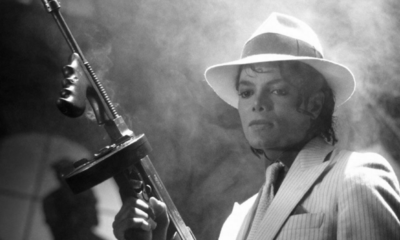

‘Blue Gangsta’ and Michael Jackson’s Fascination with America’s 20th Century Underbelly
Below is a chapter from my book Michael Jackson: Songs & Stories From The Vault, revised for this article. The full book...


Michael Jackson Meets America in Invincible Album Outtake ‘A Place With No Name’
Below is a chapter from my book Michael Jackson: Songs & Stories From The Vault, revised for this article. The full book...

First Amendment Coalition to Support Sony and the Jackson Estate in Fake Songs Lawsuit
There has been yet another twist in the class action lawsuit filed by Californian consumer Vera Serova against Sony Music...

Californian Government Joins Fraud Lawsuit Against Sony Music and Jackson Estate
The California state government has officially joined a class action lawsuit against Michael Jackson’s estate and record company. In a...



Maggie
May 15, 2014 at 8:22 pm
This was right to the point and well written as only a professional could do. I tend to agree with you that songs that were penned from the vault of Jackson were special. I was hot and cold with the album myself. Some songs rang an instant okay while others…well you could tell they were raw and not quite there. Good insight and a great report.
Elizabeth
May 15, 2014 at 8:49 pm
What are your sources for the information on the liner notes that you dispute? How do you know your source is accurate?
chicago
May 16, 2014 at 2:08 am
if you pay attention to the ad libs at the end lovin you sounds like the girl is mine
Gaby
May 16, 2014 at 10:55 am
Indeed…. The Girl Is Mine sound-alike.
Nick
May 15, 2014 at 9:26 pm
How do you know LNFSG was recorded in 1980 and not 1983? It was written in 1980, but as far as I know, it was recorded in 1983 during Jackson’s sessions with Anka, when they also recorded “This Is It.”
morinen
May 15, 2014 at 9:48 pm
Paula Anka discusses in his book that all the material he recorded with MJ was recorded before Thriller album came out.
Tom Ruijterman
May 15, 2014 at 9:34 pm
That was definitely the most informative and insightful review of Xscspe I’ve read and the one that had me nodding along in agreement most often.
It sums up my feelings that this album probably shouldn’t be happening but also my absolute delight that it has happened! I’m enjoying listening to it and it’s growing on me every day. I adore both version of Place With No Name and Loving You. Blue Gangster is the stand out track for me – stand out as in, I’d kick it out.
Two points. Firstly, isn’t it telling and wonderful that the deluxe version is far outselling the other version. Clearly the public really want to hear Michael’s originals.
Secondly, do you think Epic have been clever and deliberately chosen tracks which have already leaked to work on. Thus leaving them with lots of (?) great unheard material?
chicago
May 16, 2014 at 2:12 am
or they don’t really have much at all and are working almost exclusively with what we allready have. i remember hearing some reports that someone was accusing latoya of stealing mj’s recordings after he died. I’m not saying she did, but maybe they couldn’t figure out where Michael stashed some of his stuff…who knows..
TJ
May 15, 2014 at 10:56 pm
As always, a brilliant and comprehensively written piece Damien. The fans have a great resource for factual information here on your site. Your in depth pieces of songs origens are always a great read, and so are your reviews. It’s great to read your personal thoughts on products released.
Thanks for your continued hard work.
For those interested, I posted my opinions in a thorough track by track video review on YouTube:
#XSCAPE: A Fan’s Perspective – http://youtu.be/dTf9LhvFaDU
Michael Khalsa
May 15, 2014 at 11:54 pm
Thank you for the work you have put in Damien. I have listened so far to the originals the only song that really stood out for me was ‘a place with no name’. Michael Jackson is my favourite artist. Except for ‘Dangerous’ 25 I don’t think I will buy anymore. I would rather if they are releasing music then to release what’s worth releasing in chronological order. I know this is not gonna happen. Otherwise I would love a duets CD of the original duets which is enough for CD. Don’t even want to bother with remixes. He has a very large core base of fans. I would believe very difficult to connect ‘new’ music with a large audience except occasionally like Elvis did with ‘a little less conversation’ but otherwise estate please just pay respect & don’t mess with his work. Thanks.
Mjjared
May 16, 2014 at 12:50 am
Great review ! Always intelligent and well thought…and thorough.
BUT, you lost me right at the beginning.
“I see absolutely no need for, or benefit in, scraping the barrel for works he considered less than worthy for public consumption.”
this isn’t scraping the barrel at all ! you’re joking right? Your review reaffirms the need for and benefit in the release. multiple flawless “powerhouse vocals”. not to mention: “delightful” “i actually really loved” “ferocious”… if he worked on a track for a decade…I don’t think we’re scraping the barrel here. I honestly believe Michael planned on releasing some of these songs. He just didn’t plan on dying in his sleep. you’re rockin’ out to it…you know you are ! 😉
we are SO lucky as fans, that we get to hear our genius at the top of his game. even in “demo”, the man is still flawless.
my real question is: did you buy the album?
Damien Shields
May 17, 2014 at 6:35 am
I don’t personally believe they should or need to be released, however they have been and I am reviewing them based on their merits. I did enjoy some of the remixes (all bar a few really) and used positive adjectives in many cases, yes. I love all originals but that still doesn’t mean I think Michael would be pleased they’re released.
I think that using majority LEAKED songs is good. They’re already exposed to some degree so releasing them is of less harm to the protection of Michael’s OTHER unreleased music.
In the end opinions are just opinions 🙂 Mine no more valid than anyone else’s.
Mjjared
May 17, 2014 at 6:27 pm
( Damien: who I think is one of the greatest MJ champions in either hemisphere.)
I totally understand your take, and respect it.
My take is controversial, and is just that…my opinion…
But songs will continue to be “leaked”, most likely, throughout our lifetimes…. and you and I both will continually LOVE getting sent or finding downloads of them. So: in that respect, should we, as huge MJ fans, only get to hear them, and not the public? would Michael have wanted that? just stolen, emailed files, sent around the world not benefitting his kids or mother? But only ultra fans in the know, and Sony constantly shutting down youtube videos or websites with them on it?
I’m so tired of hearing OTHER fans saying…”we’ve already heard these”…”they are already leaked”…”these are old”, “why release these, we’ve already heard them?” Like they “own” them or something, or are proud of having stolen them. I “stole” them too, and i’m so glad they are out for the public now, to gaze in awe at.
I respect your opinion, totally.
And my opinon is: we, as the human race, are benefitting greatly from these songs being released, and they are more than worthy of public consumption, they aren’t average, they are above average, stellar even! They are genius….it’s Michael Jackson, these are exceptional works of art, and thank GOODNESS we have the orginals too, not hiding in some computer file, or website, being shared only by the elite fans, cause that’s not right either. We can have a #1 single that wouldn’t have ever made general rotation as a demo, as fascinating and raw and unique and stellar and incomplete as it is. We actually have Sony to thank for that. They actually nailed it. Turn a song many people think is a throwaway into a huge smash record. Oh, and a #1 album, too. I honestly don’t think Michael would be upset about that. But that’s my opinion, I can only guess what Michael would have wished. I can’t wait to hear what his mom and kids think about them.
respectfully yours , Jared
Cleve Foat
May 16, 2014 at 12:52 am
what’s the history of the album cover?
chicago
May 16, 2014 at 2:18 am
his mouth is covered to symbolize that he has NO SAY in any of it…. that’s just a guess tho…theyre all talking about mike talking to them in the studio in the documentary…they apparently didn’t listen hard enough…does anyone think they’re trying to encourage the death hoax people? and maybe even the illuminati conspiracy theorists too…
R-Fresh
May 16, 2014 at 3:20 am
Great review! for me the path you took.. “this is NOT a new ‘Michael Jackson album’ per se. It is simply a compilation of songs, remixes and originals, on which Michael Jackson’s voice appears. And that’s how I’ll be reviewing it. The music on this album does not have Michael Jackson’s final seal of approval and, in my opinion, cannot be held to the standards of the material he willingly released during his life.” … is exactly how it should be reviewed by the fans. And helps put it into perspective. If I’m not mistaken the inlay notes on the CD admits this too, that canon Michael Jackson albums were those released while he was alive and these albums are not canon.
Alicia Newkirk
May 16, 2014 at 4:05 am
This was a very on-point review. When people ask me if I like the album, I honestly can’t come up with an answer because I have so many mixed emotions. After listening to both versions of Slave to the Rhythm, Blue Gangsta, and Do You Know…, I much prefer the leaked versions fans heard years ago…..
Justin
May 17, 2014 at 11:21 pm
i agree, i prefer the 2010 ? leaks of the three you mentioned. that previous version of Blue Gangsta is very similar to the current demo but it had additional elements, for instance a cool scratching/stomping sound can be heard in that old mix from approx 0:38 seconds in .. it’s missing on the new demo.
Gerben
May 22, 2014 at 1:34 pm
I love the deluxe version with it’s ‘original’ renditions but for me there is also a problem. As the producers state, these songs were revisited by Michael many times. There are many different vocal takes and over the years different build-ups or tweaks were created by MJ. The originals here are obviously earlier demos. I would have loved to hear the ‘last originals’ of these tracks.
I understand why they did not put those on the deluxe though. There would be debate about the ‘updating to 2014’. Do his songs actually need updating or are they timeless in their own right. Versions that are (nearly) complete would be direct competition to the reworked ones. But the ‘lasties’ will probably end up on an outtake album some day. Like with Elvis whose songs are released in so many alternate takes and versions I have a hard time keeping track.
Jim
May 16, 2014 at 5:20 am
Hey Damien,
Tried getting in touch with you via Twitter, as I was wondering if you would be interested in engaging on an in depth conversation about Michael, his unreleased music, and what his plans were for his follow up album to Invincible.
Anyways, I’m also interested in what leads you to believe “Love Never Felt So Good” is from 1980 rather than 1983? The liner notes, which I’m pretty sure were by Joe Vogel, claims it’s from ’83, and I’d say that besides you, he’s the best MJ researcher out there. I will say that his voice sounds really “young” on it, but then again it sounded that way on the Thriller album as well, and that was ’82, so who knows.
Doc
May 16, 2014 at 7:57 am
Great review! Thanks.
I, like you, immediately felt that it would have been so much better if they had gotten Stargate to remix more of the tracks. The precise, controlled simplicity of their sound and their sense of rhythm suits Michael’s music, I think; they worked by enhancing the rhythm of his vocals instead of going against them as I agree Timbalands mixes mostly do.
Ivan
May 17, 2014 at 2:23 am
Hi Damien. Great post!
You wrote that Do You Know Where Your Children Are “was a track which Jackson was working on in the final years of his life”.
And what about the songs he was working on 2009 with Michael Durham Prince and Bradley Buxer? Songs like: Adore You, Broken Chair, Lady Of Summer , Silent Spring… what happened to them? Are they with complete vocals? Are they in possession of the Estate?
Regards,
Ivan
chicago
May 17, 2014 at 9:13 pm
he said the remix sounds similar to a track he was working on in the final years of his life.
David
May 17, 2014 at 11:59 pm
Of the new versions I really like Love Never Felt So Good (with and without JT). Without JT is smooth and with JT is a bit funkier. Chicago is cool. I really like the 808 beats and I think MJ would have been into them. Loving You is a nice old school throwback. Again I think the beats work well. A Place With No Name is great. I wish Stargate had done Slave To The Rhythm. Slave To The Rhythm is my least liked track and that’s because the Chorus feels flat. As powerful as MJs vocal is on this track I don’t think the chorus melody is one of his best. I think Stargate would have been better suited to the track, but I think they picked the better song to work on. Do You Know Where Your Children are is sweet. Nice phat beat. I like the new version of Blue Gangsta better than the old. Really works well with MJs powerful vocal. Old version sounds dated. Xscape is just ok and feels a little underdone. If I had to rank the new tracks: 1. Lover Never Felt So Good (Non JT and JT equal), 2. A Place With No Name, 3. Do You Know Where Your Children Are, 4. Chicago, 5. Blue Gangsta, 6. Loving You, 7. Xscape, 8. Slave To The Rhythm.
I think Sony has done the right thing releasing the new and original versions. Overall I think it’s a good release.
Matías
May 18, 2014 at 12:38 am
I have mixed feelings about this album. I am very thankful about the fact that they gave us the original versions. The only remixes I somewhat like are LNFSG and Loving You. The rest I feel they’re either crap or they change too much the feeling of the original version.
Man, I love DYKWYCA’s demo! So funky, classic MJ + Bottrell track. Love how it at first sounds rougher than the 2010 version (which turns out it’s a faithful re-scoring of the demo) but it’s really so much more musically complex. Love the way MJ’s voice kicks in, the guitar solo, the “She’s only twelve years old now!”. The remix changes it all so much that it kills it for me. Michael’s AMAZING vocal performance saves it though.
About STTR, the demo surprised me, it’s growing on me. It at first reminded me of Billie Jean. Top vocal delivery by the King of Pop.
Matías
May 18, 2014 at 12:44 am
I quite like Chicago, it sounds a bit unfinished and really 90s’, but Michael sounds amazing. Also, Loving You is a sweet Bad-Era track. Like it.
I think not all tracks should have been remixed, maybe only Chicago and STTR.
Overall I’m satisfied and if keeping up with the remixes is the only way to get the original versions, so be it.
Tom
May 18, 2014 at 7:30 pm
Great review. It vocalizes pretty much exactly how I feel about the album. I’m not sure if I agree with the sentiment that releasing MJ’s unpublished music isn’t the right thing to do though — however, products like XSCAPE might not be the right *way* to do it. As Joe Vogel so aptly states in the liner notes for the album: Michael’s “canon” is complete, and will remain one of the most impressive and enduring collections in the history of music. So, maybe anniversary sets like Bad 25, celebrating his albums while at the same time introducing his fans to some of the material he worked on but didn’t make the albums, would be more appropriate? The Slave to the Rhythm demo would have been an amazing addition to a “Dangerous 25”, and She Was Loving Me, Blue Gangsta and A Place with No Name would have been very welcome on a Invincible anniversary release.
Ramy
June 16, 2014 at 3:52 pm
I think you changed your ratings, is it your new opinion after listening many times ?
Thanks for your efforts 🙂
ILIA
July 3, 2014 at 10:03 pm
Oh i thought Michael came back and produced it?! u guys need to stop talking bullshit and just enjoy it
Mnl
August 24, 2014 at 10:30 pm
i’ll bet if only Michael was alive and it turns out his new sound was similar to the ones we heard on xscape,you would like it right?